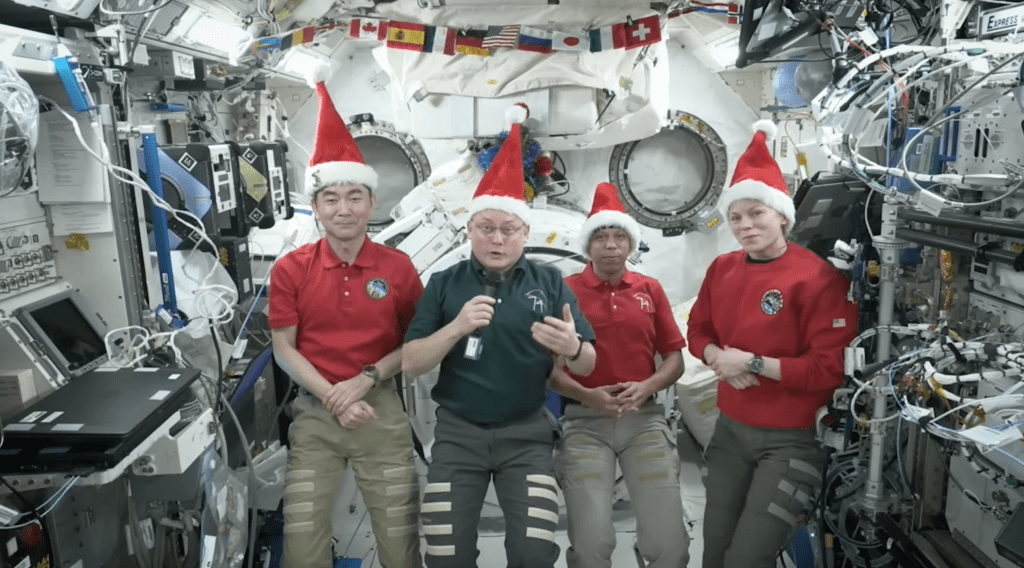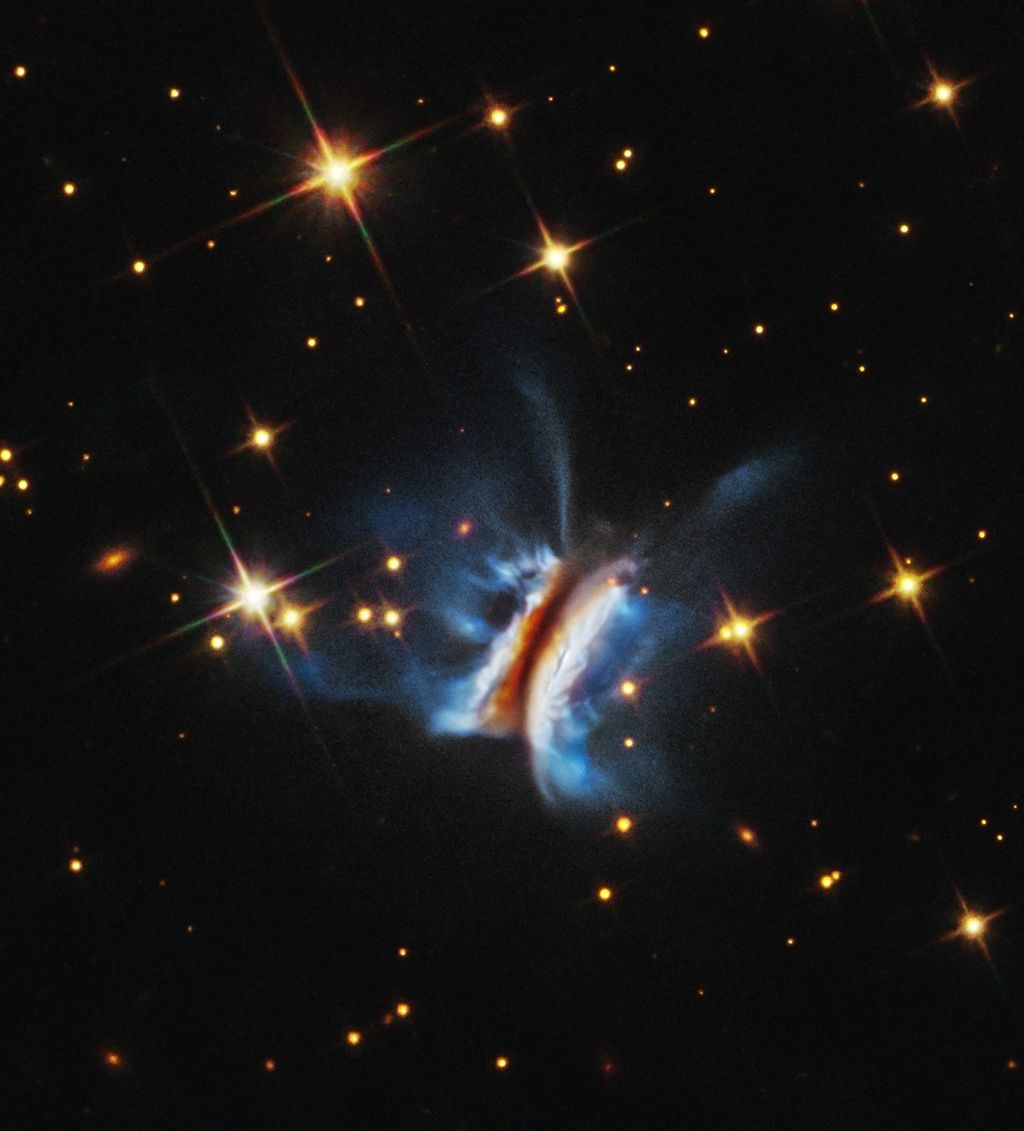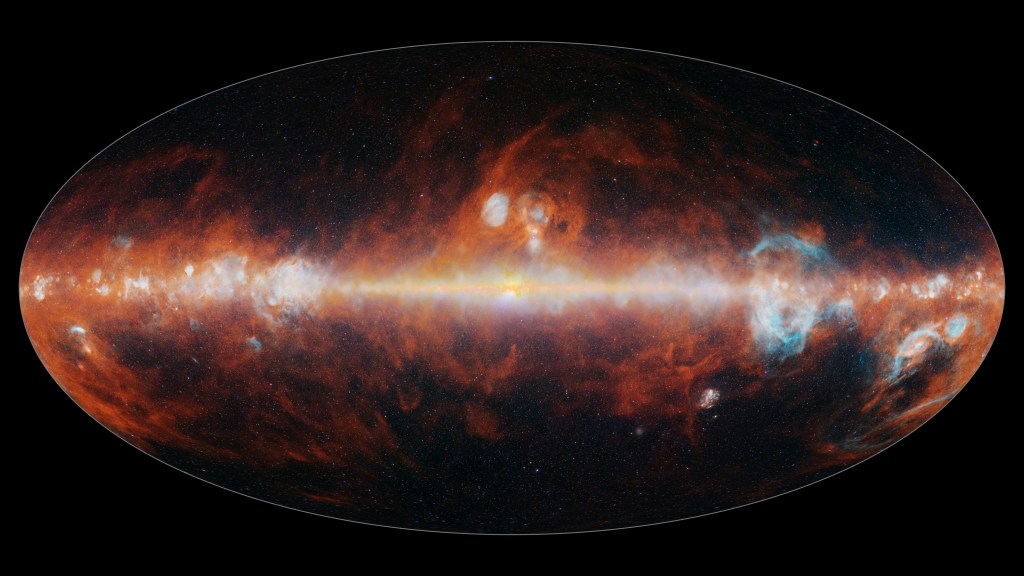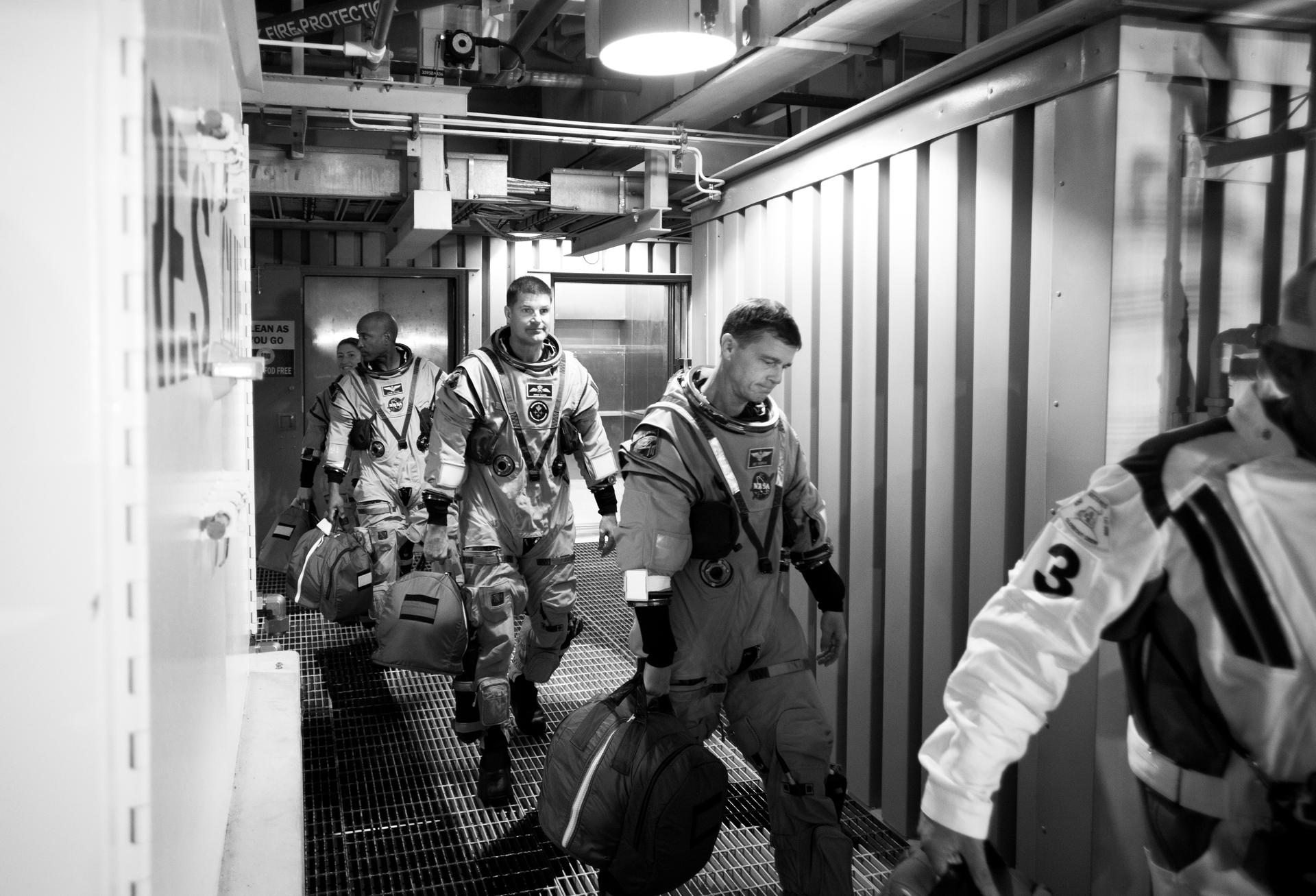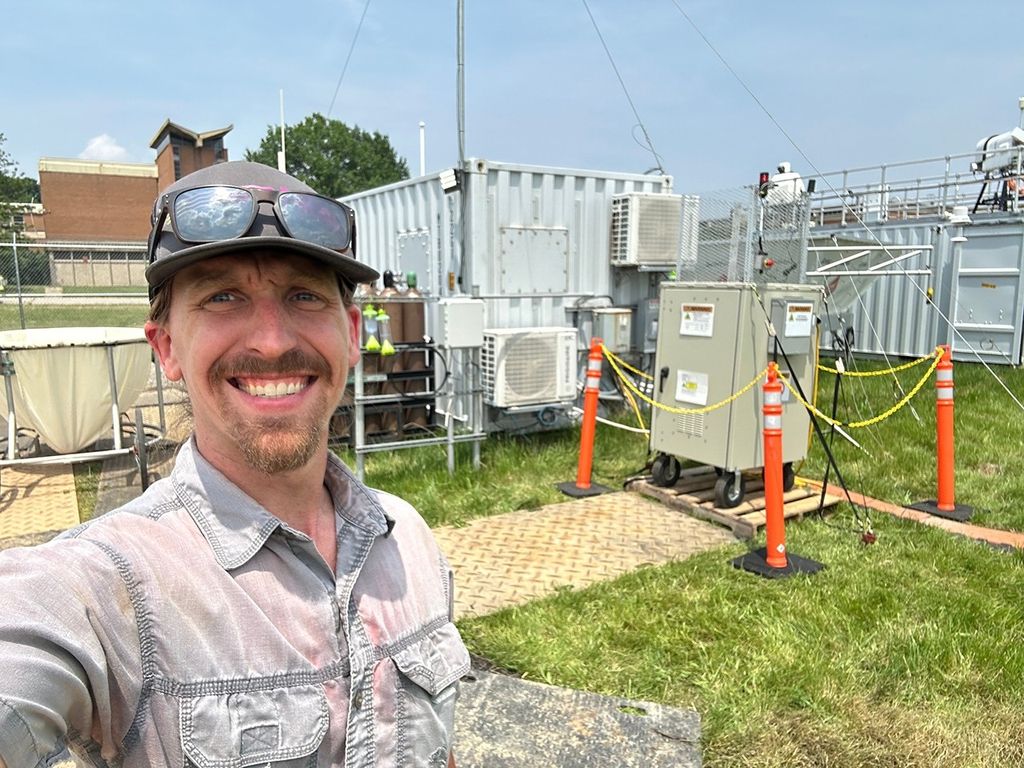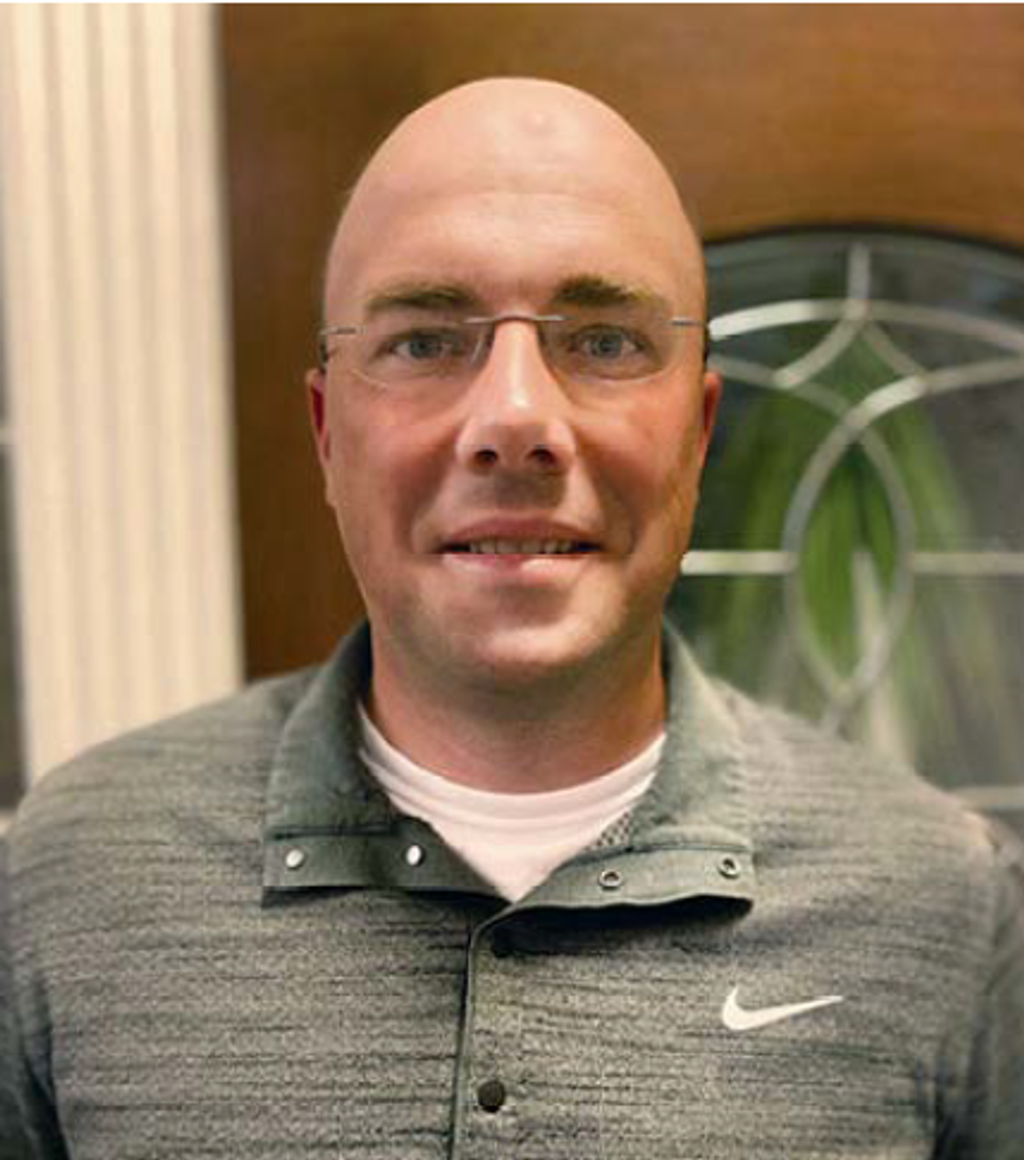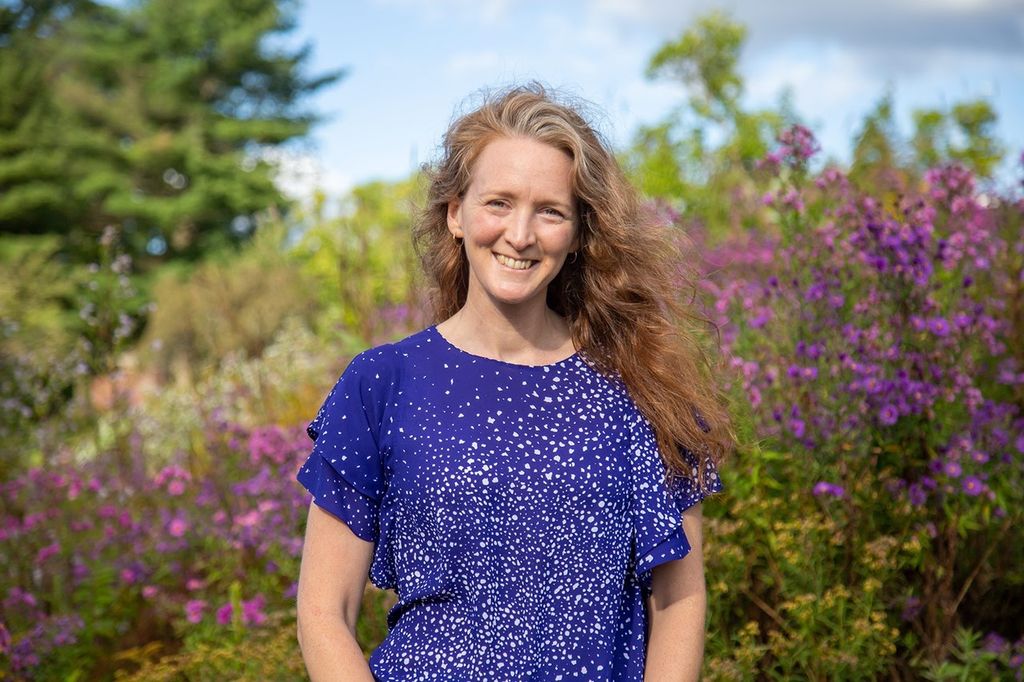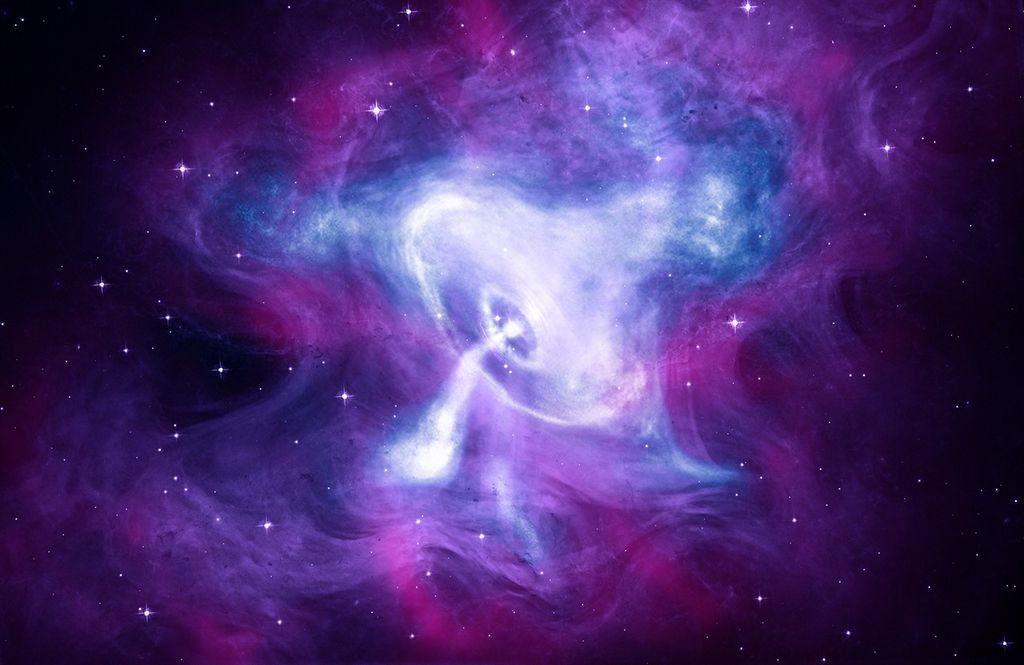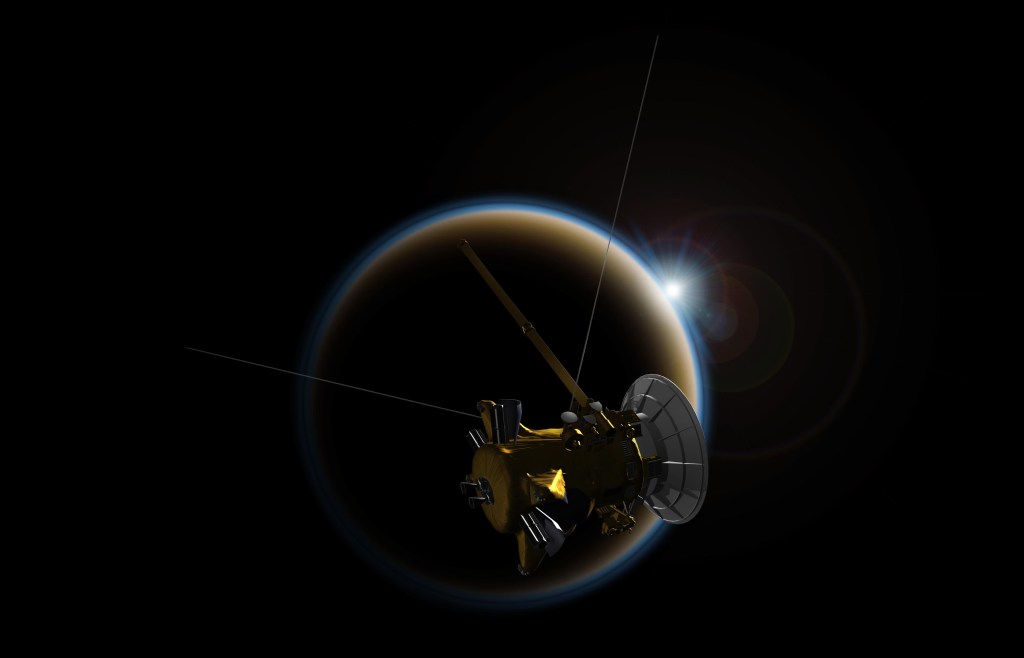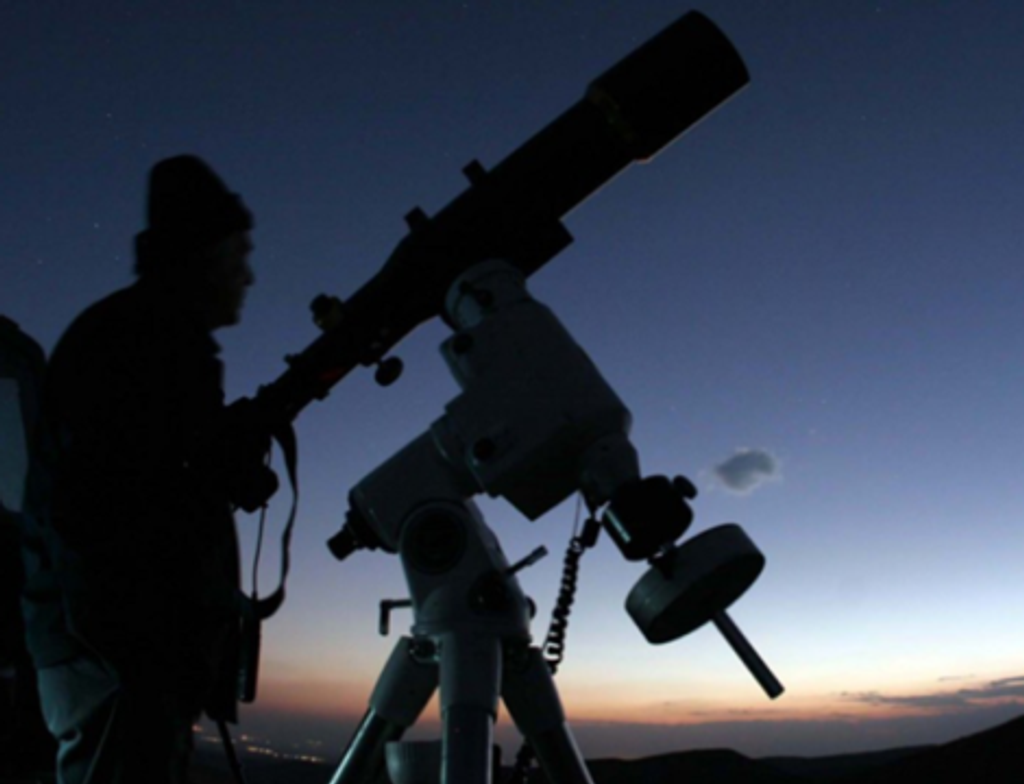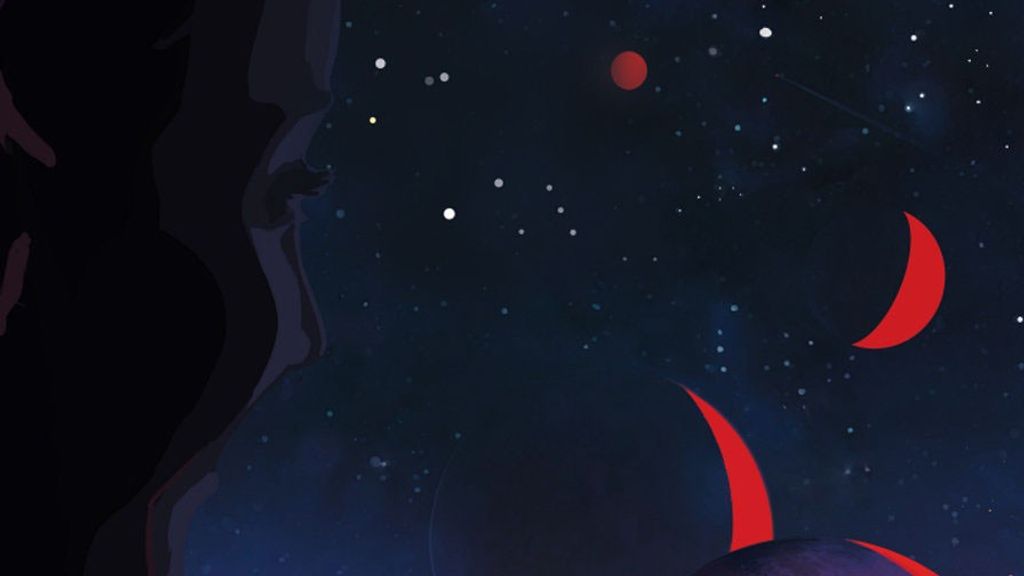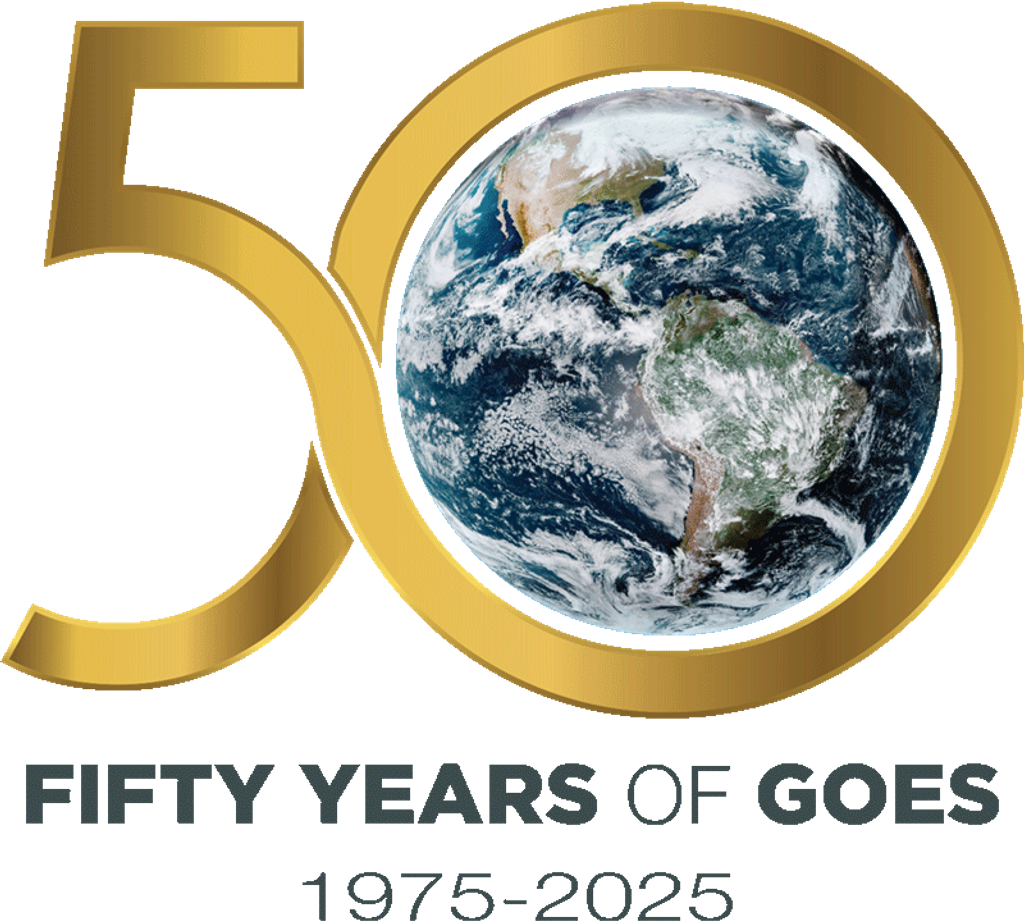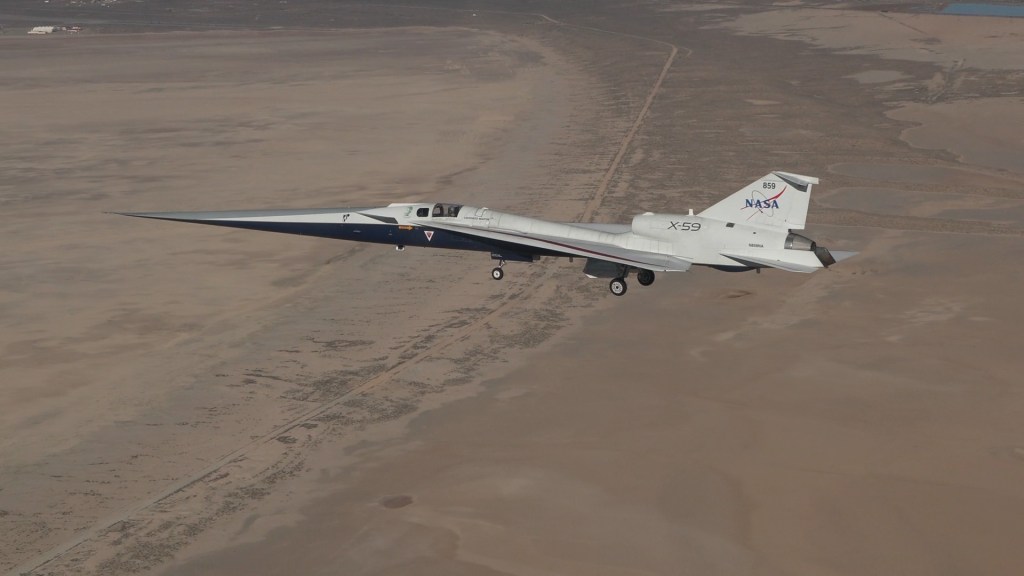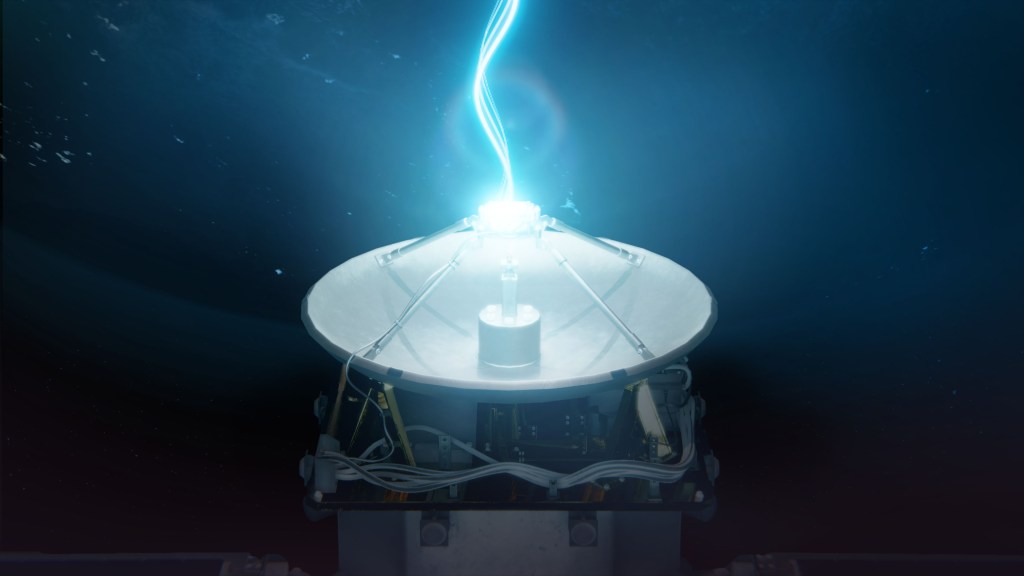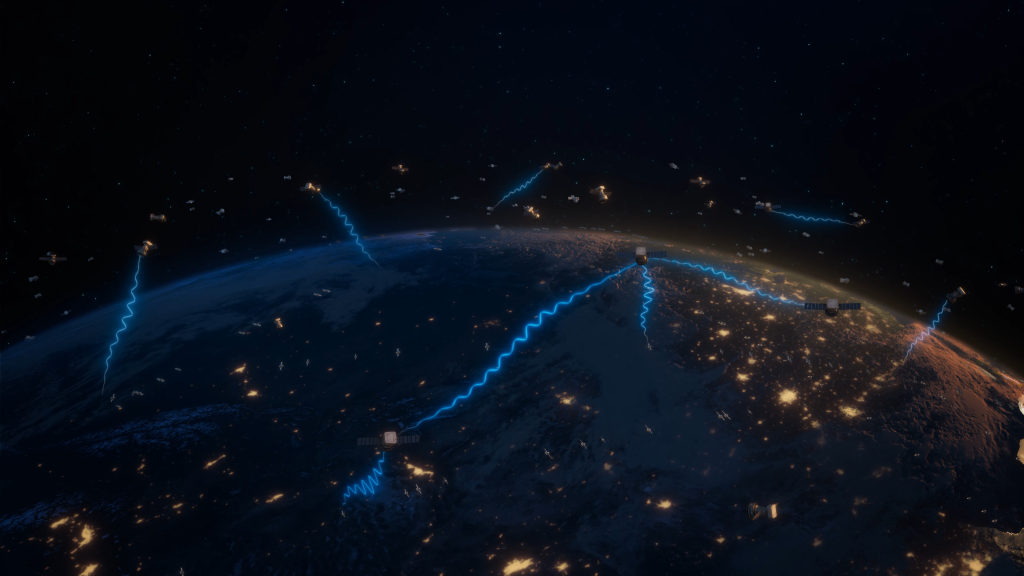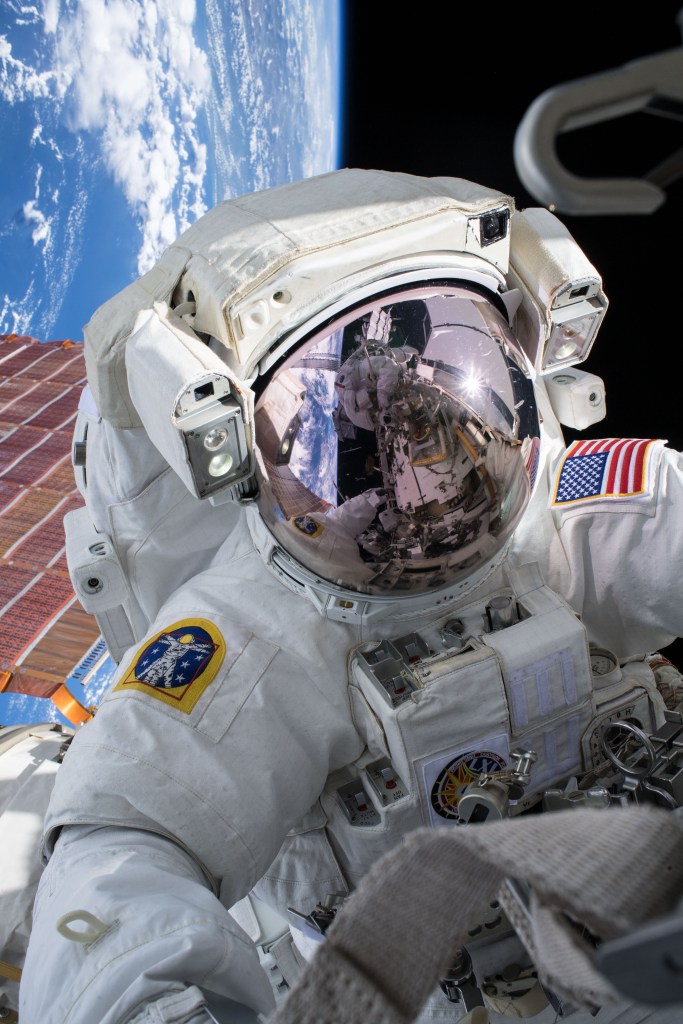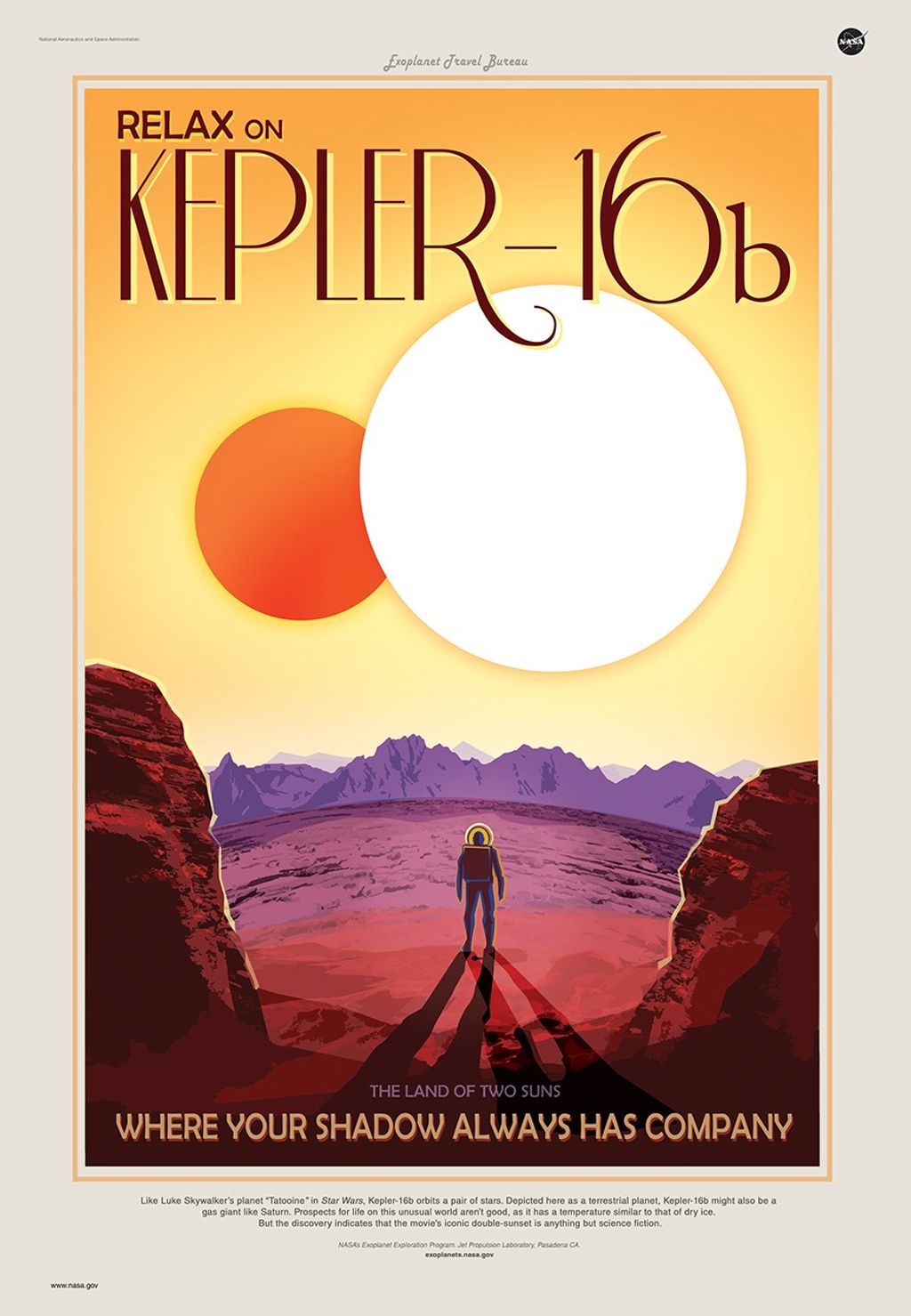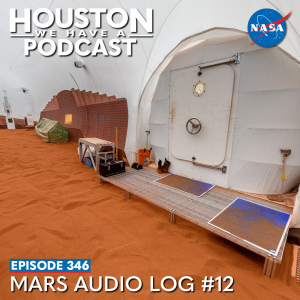
From Earth orbit to the Moon and Mars, explore the world of human spaceflight with NASA each week on the official podcast of the Johnson Space Center in Houston, Texas. Listen to in-depth conversations with the astronauts, scientists and engineers who make it possible.
On episode 346, the CHAPEA crew checks in on their last month inside of a simulated Mars habitat, and the principal investigator reflects on the year–long mission ahead of the crew’s egress. This is the 12th and final audio log of a monthly series. Recordings were sent from the CHAPEA crew throughout July 2024. The conversation with Grace Douglas was recorded on June 11, 2024.
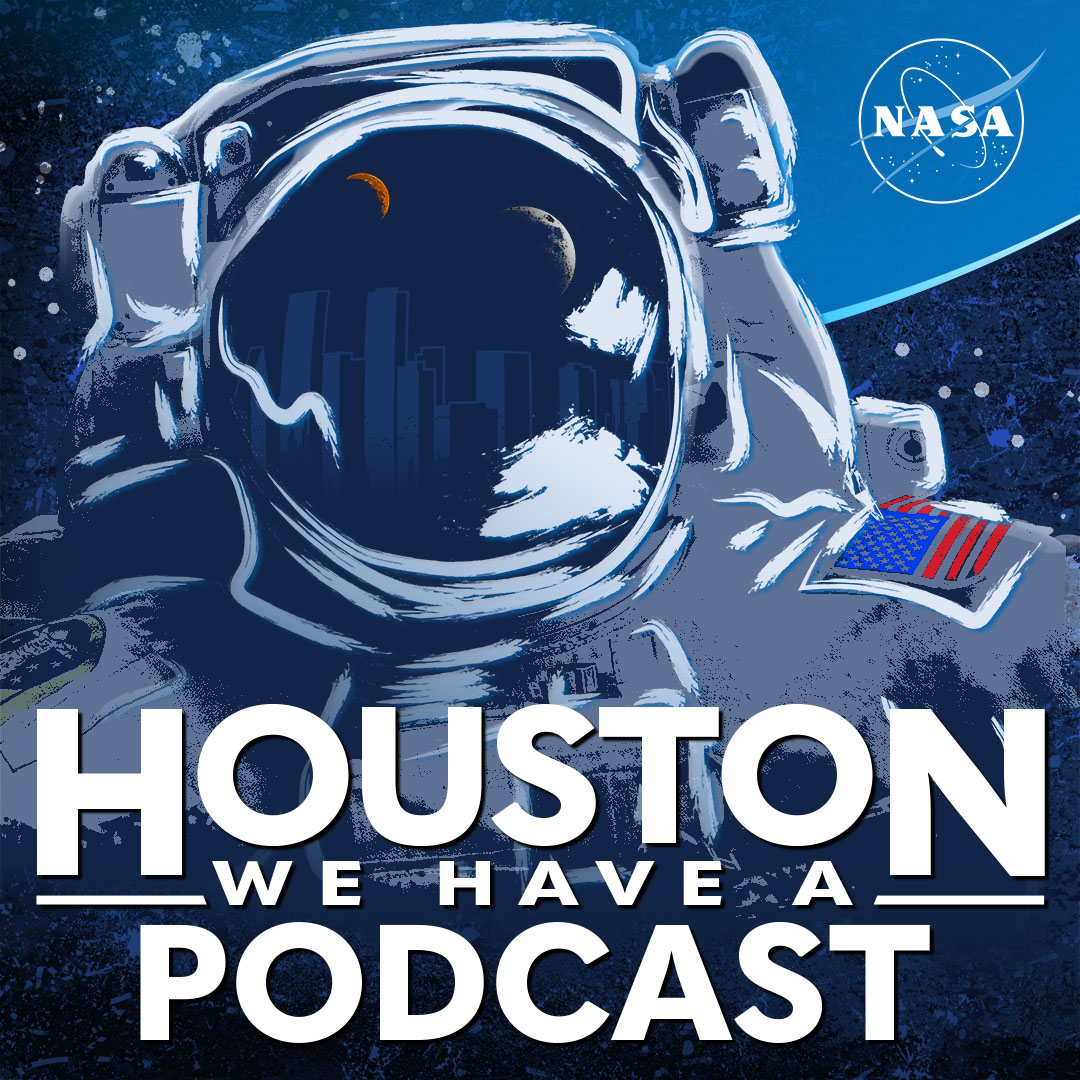
Transcript
Host (Gary Jordan): Houston, we have a podcast! Welcome to the official podcast of the NASA Johnson Space Center, Episode 346, “Mars Audio Log #12.” I’m Gary Jordan and I’ll be your host today. On this podcast, we bring in the experts, scientists, engineers, astronauts, all to let you know what’s going on in the world of human spaceflight and more. We’re back with the final audio log from the CHAPEA crew. CHAPEA, or Crew Health and Performance Exploration Analog, is a yearlong analog study right here in a habitat on Earth that is simulating very closely what it would be like to live on Mars. We’re lucky enough to have monthly check-ins with the crew, Commander Kelly Haston, Flight Engineer Ross Brockwell, Medical Officer Nathan Jones, and Science Officer Anca Selariu. To meet the needs of fitting in with this analog and simulating significant communication delays between Earth and Mars that prohibit us from having a live conversation, the crew recorded an audio log based off the questions that we draft for them.
On this episode, we’re playing the recording of their 12th and final month in the habitat, which is here at NASA Johnson Space Center and was recorded in July 2024. I know, I know. If you’re keeping track, you’re probably thinking we skipped June, but it’s just the way the schedule worked out. By the time this audio log podcast comes out, the crew will have already egressed the habitat, so you’ll hear from each of the crew member just days before they completed the mission. Our special guest for the final audio log is Grace Douglas, CHAPEA principal investigator, and we’re excited to welcome her back to the podcast. We spoke with her during Audio Log #1 to kick us off, so it’s only fitting that we close this chapter of our special Houston We Have a Podcast Audio Log series and CHAPEA Mission 1 with the person who made it all happen. So with that, here are the parting thoughts from the CHAPEA crew and remarks from the CHAPEA principal investigator ahead of the mission’s conclusion. Let’s get into it.
[Music]
Host: Alright, first up is Commander Kelly Haston.
Kelly Haston: Hi, my name is Kelly Haston. I’m the commander of CHAPEA 1, a one-year Mars analog mission based at Johnson Space Center for NASA. We are just days from egressing. We’re leaving the habitat that we’ve been living in for over a year now doing this Mars analog where we act and live in a habitat that is 3D-printed and constructed in a similar fashion to one that may be actually constructed for living on Mars and we do all the activities associated with a crew that may be living on a Mars base. So after over a year of doing these activities, we’re pretty honed in on everything that we have been doing. And believe it or not, after all of this time, the crew is actually still doing really great. Now, everybody’s had ups and downs as we come towards the end. They’re pretty minor to be honest cause this crew is very steady-state for the most part. So I would say. But, you know, there’s like a lot of excitement, but there’s also, you know, at times impatience as you get close to the end of something, it sometimes can feel really long. But overall, we’ve actually had a really, really wonderful last month and we’re heading into now just days from egress where we’re really starting to understand that like this is now we’re going to be leaving and seeing our families and all of the people on the ground crew that have been supporting us and guiding us for the whole year. So it’s a really great feeling actually, and I think that the crew has really embraced it. But in reality, we actually had work we have are still doing work up until egress and so the crew is also still staying focused on that.
Some of the highlights of our last month are actually doing last things. So we actually had many lasts more than I could even list, but as you might imagine, we had some EVAs or Extravehicular Activities. A lot of them actually that we finished up our mission on. We do both virtual reality-based and also non-virtual reality where we’re outside on the, you know, Martian surface, where we actually do tasks that you would associate with maintaining living and a habitat on Mars. And really, that was actually a lot of fun. It was a lot of fun to check mark off some of the things that we’d been building towards. So some of them were long-term projects where we were making pieces along the way and seeing those come together, it was really fantastic. We actually had several different experiments and builds going on the Martian surface that allowed us to actually finish things. And also to see where you were with some of the more repetitive things that we do. So some things we repeat over the course of the mission as they’re collecting data on us. And in some cases, like in in virtual reality, we’ve done many of the tasks that are in there multiple times across the mission with each other, oftentimes with different partners out there and different people guiding you from inside the habitat. So that’s actually been really cool to see how you actually functioned in each role and in each task with each person on the crew. So coming to the fruition of seeing us cycle through every single iteration possible is actually really exciting.
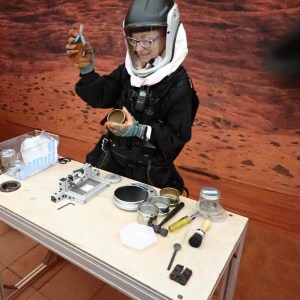
We’ve also celebrated a number of really special days, including hitting 365 days, or a full year, of being in here. And we’ve had some special messages from people on the ground, including astronauts. So that’s been actually really, really great highlight. At this point, I think all of us have won at least, you know, some card game or other, you know, group activity that we do together, some game or whatever. And we’ve also sort of had some fun doing final pictures in the habitat as well.
Kelly Haston: When I reflect on the year, when I think about what I’m most proud of, I’m really incredibly proud. And we say it every time and kind of laugh about how maybe we’re a little boring because we’ve actually been so steady-state, but I’m actually incredibly proud of the crew. So honestly think that like, we’ve actually been incredible at, you know, self-supporting, but also mutual support, both at work and at play. And that’s actually been huge. There’s been some real highlights in that, you know, like, as you might imagine. So becoming, you know, learning a special part of one of your crewmates and sharing that with them over the year has either, you know, external stuff about their families or internal things about the things that they love and hear and doing those things with them. So that’s been actually really awesome, and I’ve learned a lot about myself in that, too. So I have always thought of myself as kind of super outgoing and maybe too talkative and I feel like I’ve become a quieter person. And I think that that’s actually a really nice thing. You do have a lot of time to reflect in here when you don’t have the internet, when you don’t have a social life that you’re always busy running to and, you know, work is a different brand when you can walk out of your bedroom and be in your workspace. So I think I’ve learned a lot about what I value, about what I may be looking for in my future opportunities, and also what I think of as important. And I certainly have learned how important my friends and family are, because they have been tremendous at supporting me. So as much support as I’ve gotten in the habitat, I’ve gotten an incredibly rich and wonderful support from my friends and family. And I just, I really have learned how important that was from a person who has lived away from their home country for much of their life and also away from their family. Therefore, I didn’t, you know, I think I always thought of myself as fairly autonomous and independent, but you really are, your connections are so incredibly critical.
What will I miss most about Dune Alpha? I think that Dune Alpha is a really—I think that the uniqueness of this opportunity, the opportunity to live with three other people and work the interdependence which you have with your partner or your family sometimes, but not in the same way cause you leave them for big parts of the day, you always go away and do your own thing for a period. So I think that the uniqueness of the environment and that will be a really, really interesting thing to step away from. And I know I will miss it quite a bit. And believe it or not, I will miss the food, which I think is really excellent. And since I don’t cook myself, it’s actually been very nice to roll out and, you know, just have your food sort of ready, like ready. All you have to do is rehydrate it or get it ready, think about combinations, but that’s been actually really nice too. But I think that the uniqueness of the different activities we got to do, the work that we’ve done on this mission, even learning how to communicate with friends and family in this different way is just an incredibly unique environment to live in for a year. And actually sort of gives rise to many of the memories of living in the habitat that I will have. You know, as I said, you know, being able to roll out and just have your breakfast ready for you and then go to work right away. I don’t think I’ve ever lived in anything quite that close. I guess grad school, when I went to graduate school and got my PhD, it’s close. There were times when I slept in the lab and then would just get up and do more data capture. But I think here it’s a much more unique sort of feeling. And so I will remember that.
But there’s definitely, you know, moments, both between myself and people on the outside supporting me, moments with my family of great sorrow and also moments with the crew where we had incredible connection, where we talked about deep things or we experienced things together and supported each other through them. That’s going to be my memories of the CHAPEA habitat, along with the uniqueness of the environment and work that we did while we were here. As well as that, I would say, you know, learning to work with people that you can’t see, that you don’t make as a deep a connection with in terms of ground support. So I think that that was also a really unique situation too.
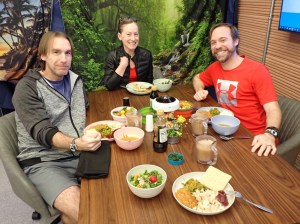
Kelly Haston: I am an outdoors person. So when I think about our home planet, when I think about Earth, I think about being outside and I really, really miss being outside. And so I think about, I really know that I appreciate the outdoors greatly, and I knew that before I came in, but I will go back to the previous statement that I made, which is I believe that the thing that I will miss, that I will appreciate the most, the thing that I have appreciated the most here, is the people supporting me back at home, the people I missed. And also just, you know, how important those connections are to me, how deep they are and how incredible my friends and family are. So I think I appreciate people the most of our home planet. Interestingly, I think you can live almost anywhere, but you actually need the people you love to be part of that experience to make it viable for you. And I think that that’s a deep message of this experience for me. You might not need them physically with you, but you need them to be part of the experience in some deep, meaningful way. You can’t just like, sort of talk to them on the surface. You have to actually have them included for it to work for you.
As we come to close our time here, I would say that I really appreciate the people that have followed our journey here, both our friends and family who have been intimately involved with sort of keeping us going. But also, you know, we’ve gotten a lot of feedback from schools and from, you know, other places, kids, you know, the public who have really, you know, been interested in our journey. And I think that this interest level is going to be critical. This analog was really tough to put together, was an incredible amount of work. A super large team spent years getting it ready and spent this year supporting us. And it was a huge amount of people supporting the four people inside. So this experiment is ginormous and I think that that just makes me realize how much harder it will be for us to put people on the Moon and on Mars and have them live there. And I really like, although I knew it intellectually, I think I know it now viscerally, that like this is such a hard thing that these people are working to do. And I want the leadership, like the people that are listening to really hopefully have been encouraged by our experience here which was a very positive experience where we got all of our tasks done and we were efficient and had fun and supported each other throughout. And I just want to take that and say, you know, as you think about supporting space exploration and travel, we need to do it in the most viable possible way. But that won’t happen without support from everyone. And also enthusiasm for the actual, you know, sort of aspects of it. So I think that, you know, thinking about how you can become involved, whether you’re into, you know, a particular field that might contribute to space travel or alternatively just, you know, as a supporter in some other way, I think that, you know, even just coming to the Space Center and seeing the Visitor Center here and really enjoying the history of it all and the forward thinking of groups like NASA, I think that’s just critical as we move forward.
So I want to thank everybody for the support, again, both my personal people, but also the greater people of our listenership that have been chiming in to hear us talk each time. So as I get ready to egress and head to Earth, I think that the first, so I’m actually quite worried, so to speak, about my first foods. We’ve been eating in this very particular way for a year plus. And I feel very healthy, and I feel very, you know, great, but I think I’m going to want to eat a lot of really rich food or salty or like, I really miss cheese and apples, potato chips, and so I’ll have to actually be really careful. But I think those are some of the first things and maybe a bit of red wine that I will eat. I think I’ll go pretty light the first few days and try not to shock my system too much. But after that, I’m really looking forward to my partner Elliot’s cooking. He makes excellent tofu and pork and other items like that. So I think that once I get past my getting my fix of cheese and apples, I will move on to his cooking and I’m really looking forward to that. So with that, I would thank everyone for your interest across this year. This has been an incredible experience for myself and if I can speak for them, for the crew as well, and also hopefully for the ground staff that have been supporting us and brought this vision to fruition. So thank you very much. I hope you are all having a great day on Earth.
Host: Alright, again, that was Commander Kelly Haston coming to us for the last time on her final audio log, Audio Log #12. Has been great hearing from her. She always has a lot to say as part of these audio logs and puts a lot of thought and care into her responses. And that has always remained consistent and is consistent with this audio log as well. Hearing her explain about the importance of connections, really resonated with me. It seemed like all the questions we asked, it sort of got back to that theme of just the importance of maintaining good connections, that you don’t have to just buckle down and do things yourself, that you can almost look at your crew as a family, that you can reach out to people on the ground and those people on the ground care about you, whether they’re family or whether they’re support personnel for the CHAPEA mission. That aspect of communities seemed to be brought forward in Kelly’s final audio log. A very powerful message on the criticality of just having a strong support network. Glad to hear from Kelly for the last time. With that, let’s go to CHAPEA mission Flight Engineer Ross Brockwell.
Ross Brockwell: Hello from analog Mars one last time. This is Ross Brockwell. I’m the flight engineer for CHAPEA Mission 1. These are some questions for Houston We Have a Podcast. So how is everything going? Just days from egress. It’s really something how well it’s gone, how quickly the time has passed. You know, I know we always have been saying it’s going great. It really has, here near the end it’s still flying by and the mission’s almost over. So it’s really, really something.
“Tell us about some of the highlights and activities of the last month in the habitat.” We’ve finished up the entire set of the EVAs, so both the VR and the non-VR, you know, the physical ones. So it kind of brought it home that we were nearing the end of the mission. It felt pretty good to get all those done. We’ve had some good ones and we’ve had a lot of good evenings together as a crew, you know, kind of been able to enjoy each other’s company and savor it. And we got some games and some shows and things that we’ve gone to over the mission. So we’ve enjoyed them together last few times.
Reflecting on this year, what am I most proud of? I would say I think that I’m, you know, I’m really proud of how we’ve come together as a team and how well, you know, in my opinion, we’ve dealt with the challenges of the mission, you know, the whole isolated, confined, long-duration aspect of the mission. There are a lot of things that, you know, people kind of assumed would be issues kind of inevitably. But we really haven’t had any of those. We’ve kind of handled the resource limitations pretty well, I think, and we’ve been pretty creative, pretty adaptable about the situation and about the challenges. And really overall, we’ve had a really good time together. So I think we should be proud of that, how we stayed unified. And I’m really proud of the years worth of data that we’re giving NASA. As part of the, you know, first CHAPEA crew, obviously, I really hope that they get everything they need out of it and that it serves its purpose.
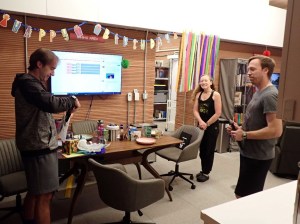
Ross Brockwell: What did I learn about myself? I learned that I’m okay with a simple existence. Things are pretty straightforward in here. But I’m okay with that. I mean, I think I’ve learned that I really could do a long-duration exploration mission. I think I can handle it and even enjoy it. So, it was nice to sort of prove that to myself. And I learned that I actually do really like astronaut food. It’s really, really good. The menu’s really impressive. And I also learned that my desire I’ve had, you know, since I was young about making a contribution to space exploration is sincere. It’s felt really nice to play a part in it for this last year.
What will I miss the most about Dune Alpha? So maybe along those lines, it’s kind of a sense of adventure to this that I’ll miss. It’s kind of like I’m a part of a planetary adventure, even though it’s just kind of a dry run and it’s the planning stages, I still know that I’m part of it and hopefully taking a significant step towards getting us to Mars. So I’ll miss being a part of that.
What are some memories about living in the CHAPEA habitat that I’ll remember the rest of my life? We have a lot of them, so some of the birthdays and holidays are really memorable. Pretty unique birthday for all of us. The holidays were fun. We’ve had a lot of pretty funny moments. Just some of the EVA moments were really interesting and exciting and even funny. We have sort of a small collection of airlock moments that make us laugh that will be memorable. But a lot of them just center around the time with the crew.
Ross Brockwell: What do I appreciate most about our home planet? I mean, Earth is amazing. We really are kind of part of a really breathtaking, beautiful planet, you know, the whole ecosystem. And I appreciate how beautiful it is, how creative it is. It’s just like wondrous, you know? And the proverbial wonders never cease. It’s really true. I mean, Earth is deep and complex and miraculous, and so it’s very easy to be grateful for it.
Any closing thoughts to the dedicated listenership who’s followed our journey? Thank you very much. I really appreciate the interest and all the support, and it’s really important, I think, to just keep up interest in general for spaceflight and for the Moon and Mars. And if you’re not already a part of it and you’re interested, I would encourage you to go for it. Dream big and try different things. See what you’re interested in, see what you’re good at, and pursue the things that you feel passionate about.
What is the first thing I’m going to eat on Earth? Something at the egress ceremony. I’m sure, I figure they’ll have some things there. We’ll see. Whatever it is, it’s going to be delicious. I don’t want to disparage the food in here, of course. I mean, in all honesty, I really can’t say enough about how good it is and how impressed I am with it. You know, over a whole year it hasn’t really lost its you novelty or it’s enjoyability. But I’m definitely looking forward to something fresh, some kind of fresh fruit or seafood and something warm that was recently cooked that was not out of a bag. It’s going to be amazing. So I’m looking forward to it, but I don’t know exactly what the first thing is going to be. So thanks again for everything. Appreciate it and we’ll see you back on Earth.
Host: Alright. Again, that was Flight Engineer Ross Brockwell for his last audio log. Always fantastic to hear from the crew when they say that it’s really been good, things have been going good. Of course, ups and downs are very natural, but for a crew to be consistently saying that over 12 months, I think I said it on the last audio log, but it is quite impressive, and it is nice to hear for our retained listenership that’s been listening to all of these audio logs over the past year. So it really is just a wonderful thing to hear. Kelly said it, as well as Ross, but both of them mentioned that the EVAs, the spacewalks, that they were conducting both in the simulated Martian soil and regolith, as well as the VR spacewalks, both of them came to a close. I thought that was interesting. And the fact that the spacewalks in the whole series of them, really, they got a chance to wrap up whatever project that was, rather than just leave some open items for the next crew. So there had to be this sense of closure and completion and tying a bow on whatever they were doing. And that must feel good and sort of lead to that feeling of, wow, that mission is almost ending. So it was really good to hear that a lot of the stuff that they’ve been working on for so long, because they did quite a number of EVAs over the past year that they got to really tie a bow on some of those items. I think Ross’s approach to really taking on this challenge of being isolated for a full year, he mentioned than it goes just beyond just handling it, right? Can I do it? Can I survive it? But what Ross mentioned is that not only could he do that, but he could enjoy it and had to do with that that comment about his sense of looking at CHAPEA as a sense of adventure. Which I think is true for a lot of our crew. A lot of them really enjoy the outdoors and enjoy that sense of adventure and trying new things and taking on new challenges. But really looking at CHAPEA as an opportunity, I think really lent to the success of the crew as a whole. And I think it goes out without saying that I think really a lot of us can relate at any point in our lives. Some of the things that we remember most are those shared laughs that we have with our family, with our friends, those stick with us throughout our whole lifetime. And it’s no secret that this crew, especially a crew like this, who has been just so optimistic and good-natured through this whole thing, to have those shared laughs and to remember that is really an inspiring thing to hear from Ross. Alright, next we have two more audio logs to go. Let’s go right to Medical Officer Nathan Jones.
Nathan Jones: Hello, this is CHAPEA Mission 1 crew Medical Officer Nathan Jones, checking in with you here. Everything’s still going pretty well at the time of this recording. We’re just a few days away from our egress, and I’m really looking forward to getting out and seeing my friends and family again. Some of the highlights of the past month, we finished our last EBAs, a lot of lasts in there, if you will. And so we really had a neat opportunity in here. You know, in life a lot of times you just never know when a lot of things will be the last time you get to do them or enjoy them. And one of the neat things about the mission is having such a defined schedule. We knew, you know, when it would be our last, you know, EVA and that sort of thing. And so it just really gave us a neat opportunity to take in those things and plan for them and just kind of mentally be prepared for them.
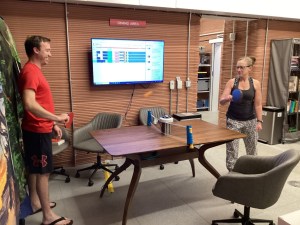
More recently, one of the things I think we’ve all enjoyed doing is just really looking at certain things like the foods and those sort of things and thinking, you know, which one of these do I really want to have just a few more times before the mission is over? And so we’ve been a little bit more cognizant of those sort of things as well. And so that’s made for a really special time, I would say in the past month as we prepare for egress.
Reflecting on this year, the next question says, “What are you most proud of?” I think for me, what I’m most proud of are two things actually tied. Just one, how well this crew worked so well together to complete this mission. And two, I’m just as proud of my family and how well they all did this year. Not that I was surprised at how either did, but I’m just very proud of the work for both of those.
Nathan Jones: And next question, it says, “What did you learn about yourself?” I think for me personally, there was some growth in my ability to handle downtime. You know, the ability to slow down when needed. You know, you can’t always stay busy whenever you’re in an environment like this. And so one thing I think that I learned how to do just a little bit better is just to cognitively sort of reframe those moments, you know, time speeds past us so quickly most of the time. And I’m a pretty busy person, so most of the time, you know, it’s just going right by and some of these slower moments that gave me an opportunity to sit and, you know, realize that, you know, that slowing down was something to actually get to actually enjoy.
Next question, it says, “What will you miss most about Dune Alpha?” I think what I’ll miss most are the NASA employees that I’ve had the joy of engaging with this past year. It’s truly been an amazing experience and I’ll never forget that. The next question is, “What are some of the memories of living in the CHAPEA habitat that you think you’ll remember for the rest of your life?” Some of our team activities I think will probably stick out the most big one being like the urine bottle bowling that we mentioned previously, card games, some of the holiday celebrations were really special too, and I know that I’ll remember them for the rest of my life as well.
“What do you appreciate most about our home planet?” Well, I would still say after this mission, that Earth is definitely still my favorite planet out of all of them. But I think I’ll still appreciate the same things as I did before the mission. You know, they say home is where the heart is, and I think that’s still true. While I love nature and sunshine and all those things about Earth, I think the thing that I love most about Earth or that’s where my people are.
Nathan Jones: “Any closing thoughts to our dedicated listenership who followed your journey?” Yeah. I’d say let’s keep daring to do new things together. A friend of mine wrote a card to me before the mission with a quote on it from Shel Silverstein, and it said, “Just ’cause something ain’t been done, don’t mean it can’t be did.” And, you know, I thought that was just a really good sort of thought there, you know, that we should keep on pushing to do new things and challenging ourselves, but not just challenging ourselves by ourselves, but to do them as a team, to do them with others. And yeah, I think we can just accomplish so much more that way.
Next question, the final question it says is, “What is the first thing you’re going to eat on Earth?” You know, I don’t even know yet, to be honest with you. And that’s because my wife said she’s going to surprise me by bringing me some treats to the egress celebration. And I’ve got a pretty good idea what those will be, some of them might be as silly as sour candy, but she also knows that I really love a simple burger and fries so and so it could be even something like that. Besides that, I am looking forward to eating the normal Earth foods again, just in general. But one thing that I’m particularly looking forward to when I get back home is some of the crops from my garden. I just saw some beautiful pictures of the crops that my family has been growing this spring and summer, and it’s made me even more excited to go back and get to enjoy those. So that’s all I have for this podcast. Thank you so much everyone for your interest in our mission.
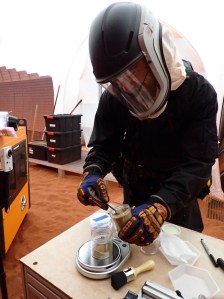
Host: Alright. That was Medical Officer Nathan Jones for his last audio log. Nathan seemed to have this approach of reframing his mindset in order to be successful. And I thought that was something that is really inspiring. He mentioned two things that really came to mind for me. One of them was the food. I’m sure after a year of eating from a very similar menu, you could get tired of it. But I thought it was interesting. He said, you know, of this menu, which ones do I really want to have one last time before exiting? Almost like looking forward to the meals that he’s had probably countless times. And so I think having that mindset of looking forward to meals and looking at this as an opportunity, not just here we go again, I think just lends to this positive nature of the whole crew and that aspect of just being successful and maintaining that positive energy where we check in every month and they said we’re doing great. Also just hearing from Nathan, of course, with a medical background, Nathan, of course does have quite a busy schedule, not only with his medical background, but being a dad and a family man, lots to do in his life. And of course, that can change when you’re going into a habitat. And as much as you want to stay busy, you don’t have to, you can’t. And so that can really take a toll, if you have some downtime, but you don’t normally, you’re not used to downtime, downtime’s not a part of your life. So hearing from Nathan that he was able to reframe that and look at that, not just as a challenge, but really as an opportunity, alright, how can I reframe to really enjoy this downtime? I found truly inspiring. It’s been great to hear from Nathan as well as the rest of the crew on their journey and just again, maintaining that positive energy. All four of these crew members have just been wonderfully inspiring to hear from. So thank you, Nathan, for all that you’ve done to contribute to Houston We Have a Podcast. We have one more crew member to listen to, and that’s Science Officer Anca Selariu. Here’s her last audio log.
Anca Selariu: Hello, Earthlings. My name is Anca Selariu. I’m the Science Officer for CHAPEA Mission 1. Well, as you can imagine, we are all busy wrapping up the last few items, doing the last hab cleaning, sorting out inventories, packing, and just getting ready to depart. As much as we enjoyed each other’s company, we all look forward to seeing more than three other faces and reconnect with friends and family and the wonderful people at NASA who have been supporting us behind the scenes. During this past month, we had the last batch of in-mission data collection. We said goodbye to the sandbox and to the Mars VR experience, which for me personally has been the high point throughout the mission. We celebrated crossing several milestones. They even seem to be getting more frequent as the mission came closer to the end. We even celebrated our one-year anniversary twice because we are the first to have lived the leap year at Mars Dune Alpha. In July, we had Canada Day and July 4th to look forward to, and we also had our last Phase 10 and Farkle championships, which were massively successful.
What I’m most proud of, I’m not sure proud is the correct word. I think astonished is more appropriate, astonished that I was part of CHAPEA Mission 1 crew. I mean, thinking back to where my life began, I never thought it would ever take me here, and that I would be given the chance to contribute to bringing humans closer to Mars. I learned a great deal about myself and observed how the collection of good, bad, and ugly that makes me an imperfect human actually can get refined and fit into something extraordinary when getting together with other people, intent on breaking some barrier or another, such as researching how to get safely into deep space. It is the diversity of thought, the diversity of experiences and perspectives that makes us incredibly strong together. And that is apart from our relentless, and perhaps, not always reasonable optimism that somehow, we will eventually succeed.
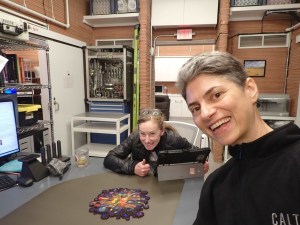
Anca Selariu: I will miss a lot about Mars Dune Alpha. It has been one of the most comfortable places I have lived in. I’ll miss the soothing hum and the restful sleep, the Moon-shaped sconce in my room, the sandbox. I will miss the excellent and varied shelf-stable, cuisine. But I do look forward to bite into a slice of hard crust bread with butter and have some plain yogurt with fresh forest berries for breakfast. I do have very medieval tastes and food, I admit. But honestly, most of all, I will miss the crew because they made this year one of the best and most meaningful years of my life. I’ll miss working with them, all our fun and games and activities. Our organized show watching, the many interesting conversations and even the nerdy humor. Living here has been illuminating in many ways. It has been eye-opening to experience firsthand the complexity of answering the many questions that, on surface, seem very simple to answer. But all the stressors, combined with the resource limitations and the communication delays to being on a different planet, hold a lot more depth than one can anticipate. And I’m as excited as the NASA research teams themselves about the results of this study.
On a personal level, it is truly remarkable to learn how many material things you actually never miss, and how much richer your life becomes when you step away from the daily distractions of digitally connected Earthlings. Not a single time did I miss ads or online shopping or handling money or checking my phone. I’ve never been a big consumer of social media, so there was no love loss there. But the strangest effect that this simulated Mars sojourn had on me is oddly, a more profound connection to Earth. One that I remember having in my youth. Everyone I knew back then lived in an analog-type of existence, in which it was completely normal to know what a live potato plant looked like, because odds were you actually touched one. The connection to dirt and to wilderness was a direct unmediated experience. I was also raised to believe that each creature, from bug to forest, was a living, sensing and absolutely amazing, magical thing that made up Earth’s living skin. For me, having this perspective about Earth and Earthlings as equally important pieces of a single biological network also informs how I think about deep space exploration. On Earth, we learned that we all depended on each other to survive and adapt throughout all these billions of years. Biology is incredibly creative and rather fond of rule breaking just about when you think you have it all figured out. If we leave Earth, I think we probably have a much better chance for long-term success if we go together and give everyone a chance to contribute.
Departing Mars Dune Alpha, I will sorely miss the NASA team that built CHAPEA. I’ll miss their generosity of spirit, their dedication, and having them support us along the way was an enormous source of daily inspiration. I would like to close by thanking you, the listeners of this podcast and all space dreamers out there that are, were, and ever will be, because it is our dreams that are making this journey happen. I hope we all get to see the first Earthling step on Mars and just imagine what comes next. But until then, keep on dreaming.
All: Alright, that’s Kelly, Nate, Ross, and Anca signing off from Mars, Dune Alpha. See you on Earth.
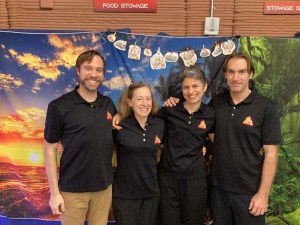
Host: Alright. Last but not least, that was science Officer Anca Selariu, the last crew member of the last audio log. And always wonderful to hear from Anca, very insightful and always has a curious mind to pull from and learn what’s inside that really drives her. It’s really just this drive of wanting to contribute to something greater than herself and contribute to the growth of humanity for time in the future that a lot of us, I don’t think normally, think about. And with that came, I think a lot of her comments, right? She talked about an appreciation for the crew and appreciation for just the experience of being there. She used the word astonishment, right? So just being wowed, amazed, and really appreciating and just enjoying the moment of being in an isolated habitat. And again, we talked about mindset with some of crew members. I think it’s really inspiring to hear that. I think where a lot of us would go into a mission like this and maybe with a sense of fear or challenge or survival, a lot of the crew members have this approach of opportunity and astonishment and amazement and pride. And it’s really wonderful to hear from all of the crew members that seem to maintain this sort of mentality when going into a yearlong mission, looking forward to opportunities rather than just looking forward to an end. You know, what’s the last meal that I can have? What’s the last EVA that I can wrap up? Really just powerful words, I think from Anca, who I know took care in recording this audio log. And it’s much appreciated.
Of course, we always loved hearing from Anca on the crop production aspect of CHAPEA and establishing a connection even with some of the crops, no stranger that some of the first foods that she would eat would be fresh berries and bread and some of those fresh items that I think a lot of the crew members miss. But hers was definitely specific. And one thing I loved pulling from Anca throughout this year is really her appreciation of Earth. And she was, I think even from the beginning, always very appreciative of our home planet. But to hear that grow over time and have a new and developed perspective of it and a higher appreciation for it, I think it’s maybe true. Though it might not be said outright by some of our crew members, I do think that there is this desire to really look at our planet in a different way and to do what we can to help it and appreciate it. And so that truly came across from Anca and from the rest of our crew members. This was really a special experience to hear from all four of our crew members for a year, once a month checking in and just seeing their journey. And it’s been just such a wonderful ride.
I of course am not the only one that gets to talk with them. The mastermind really behind this, we got to talk to at the very beginning of this series, the CHAPEA Principal Investigator Grace Douglas. We are very fortunate to bring her back for the final audio log for some closing thoughts on this entire experience. And we recorded it just a few weeks ahead of egress. Let’s go to Grace.
Grace Douglas, it is wonderful to have you back on the podcast, on our final audio log with the CHAPEA crew. So great to have you. Thanks for being here.
Grace Douglas: Well, thank you very much for inviting me back. It’s a very exciting time.
Host: So we are recording this in June, Grace, and we’re less than a month from egress. I want to get a sense of where you’re sitting right now, because this podcast, this episode, is going to release even after the crew egresses. But what we’re trying to capture is their final moments. I want to get a sense of your final thoughts ahead of really what is, I guess, the end of the mission and the egress of the crew. What’s going through your mind? We’re just a couple of weeks away at this point.
Grace Douglas: Yes, and we are all extremely excited. I’m extremely excited. This mission has been in the planning stages for a lot longer than the time of the mission even so that we’re coming to the success of this first mission is very exciting for everyone in our whole team. And it’s really exciting that we’re hitting this amazing milestone in collecting this data and getting this information that’s sitting on this path to Mars. So, it’s really just phenomenal the way that we all feel coming up to this egress event.
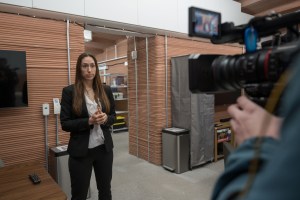
Host: That’s so reassuring to hear because you feel like going into a mission, did I do everything right to prepare for a year? Because one of the interesting themes that we’ve had talking with special guests like yourself through this audio log series, is really when it comes to the science, you really don’t want to tweak too much, right? You want to keep that science consistent throughout the mission and even so for future CHAPEA missions. So into it, you’re so excited for the end of it. And you feel pretty confident on the processes, the procedures, the method of how you approached CHAPEA 1.
Grace Douglas: Yes. And this was a very challenging thing to do. So for our team, this was new for NASA, we built the CHAPEA missions from the ground up. We built the habitats. And so to get through all of these pieces to this point is a huge accomplishment for the crew, for the crew’s families, for our team. And it’s just a huge accomplishment for NASA and we’re really excited that we’re coming up to this milestone.
Host: Yeah, I mean, thinking about the past just year, right, from the time that the crew first entered the habitat and all the work that’s gone on since last year, since 2023, when you reflect on the day-to-day, when you reflect on all the effort that was put in through every day of this mission, what are some of those themes? What are some of those thoughts, those feelings that come to mind when just realizing everything it took to get to this moment?
Grace Douglas: So for this mission, it was really like a marathon. And we all kind of went into this knowing that, you know, it was really during pre-mission training, there was a lot of work going on. And when we started the mission, everyone was already working really long hours. And, you know, you get to this point where you’re like, okay, well we need to remember that this is going to be a very long mission. We need to pace ourselves through it. And I think that was one of the big things, making sure that we were checking in on each other, taking care of our teams, you know, making sure that we were getting through this very long mission knowing that it was a marathon and this wasn’t going to be short, it wasn’t going to be a race and we we’re going to have to do this every day for the next year. And you know, I think as far as expectations, what happened over the year was pretty similar to our expectations and the fact that we were all working very long hours and very hard for an entire year. So, I really have to say this team is incredible because it’s a small team and, you know, this team and this crew being in this for a year like this and not getting any breaks is incredible.
Host: Yeah. As a leader of this mission when approaching that, when understanding that we’re really going to go have to go into this, working long hours and putting a lot of effort into it. But the marathon analogy is perfect cause it’s continuous effort, but you have to really think about the long-term so you don’t burn yourself out in the short term. As a leader, when you are communicating with your team and motivating them to get them through this, what were some of those guiding principles that you really tried to relate to the team that, you know, we’re in this together. This is very important.
Grace Douglas: I would say for guiding principles, we need to make sure that we’re checking in on our team members. Make sure that everyone’s doing okay for the length of that mission. And, you know, that was really the main focus is just checking in on your team members.
Host: Not just assuming that everything’s going according to the plan, but really saying, “Hey, we’re in this together.” Wonderful. Now you had a wonderful crew. We have had Grace, we’ve had such a blast hearing from this crew every month. And I think for our listenership, and especially for the podcast team, getting to hear these and make comments on them and listen to them is we almost feel like we’re a part of the crew. They’re just such a wonderful group of people. I wonder from your perspective, from a scientific perspective, you selected four individuals, right? And a lot of people applied. You selected the four. When it comes to the crew that we got to see, we got to hear from for a year as part of CHAPEA 1, how do they meet your expectations? How do they differ from what you were expecting this first analog crew to be like?
Grace Douglas: NASA has a lot of experience selecting analog crews, and I think we put a lot of that experience in play here. This was a much longer mission, you know, with the time delay, than a lot of the other missions have been. And so, we made sure that our selection process was going to be pretty rigorous. And I’ll say that this crew has been incredible. And, you know, they’ve been very dedicated and to get through a year mission like this is no small feat. They’re very astronaut-like and so they met, you know, that selection process was a good one. And our crew is incredible and we’re incredibly happy to have them. Just listening to the podcast, I think that the community can get a really good sense of the dedication of this crew and that, you know, they’re just really a great group to work with.
Host: Oh, absolutely. We sincerely enjoyed hearing from them every month. I wonder the support team too, you talked about their dedication and this marathon mentality. You know, you select a group of people that’s willing to dedicate so much of their life to be able to support the crew, right? You had mission operations, 24/7 operations. You had scientists, you had all of these different components to enable CHAPEA, right? It’s not just building a habitat and letting it go. There’s this constant support that happens throughout the mission. How did this team that you selected, how did they sort of meet, or I guess, meet your expectations when it comes to being dedicated to a yearlong analog?
Grace Douglas: So the CHAPEA team has definitely been very dedicated and incredible. And I will say this is also a very integrated team. So just like the mission is very integrated science, we have an incredible collaboration amongst this team. There are team members from engineering, there are team members from the science community, so among different disciplines in science. And I just want to say how incredible everyone has been in making sure that we’re all working together, that we all have a good understanding of what everyone else is working on to make sure that it is cohesive and integrated. And it is just incredible to have that collaboration between science and engineering. That’s not always common, right? And, you know, engineering helped build this habitat and has helped run these missions while the scientists are integrating all of the science and getting this data from these missions. So it really is an incredible partnership and I wish I could call out everyone by name just to give them acknowledgement for that.
I will also say we want to say that the CHAPEA crew and their families, of course, are still part of that team. And, you know, they’re incredible part of that team and their families and friends have been phenomenal support. That’s a very important thing when you’re going into a one-year mission to have incredible family and friends. So we want to thank them for that. And then just the general public, we thank them for being interested in listening to these podcasts and their support for NASA and for these kinds of missions that are going to help get us to Mars. And we want to thank Public Affairs for their participation in getting that information out in such a great way.
Host: We are trying. And it’s of course part of the mission to really spread the word on what we’re doing and why it’s important, but it is just truly fascinating just to listen in every month and walk through their journey with them real time. It’s been absolutely fascinating. And on the value of CHAPEA, on really just understanding, you know, why it is we’re doing what we’re doing, why it is we’re communicating what we’re communicating. You talked about all the great teams coming together. I want to focus a little bit on the scientific community. We have had so many guests on this podcast alone, and I’m sure the scientific contribution goes beyond just the guests we’ve had on this podcast. But I think what we’ve tried to demonstrate is just the breadth of input from the scientific community to really talk about how excited they were and what they’re trying to get out of CHAPEA. And I know there’s a lot of data to parse through at the end of this mission. There’s so much that’s going to happen after egress to really dive into the data and understand it. But I wonder if you’ve gotten some anecdotal feedback from the scientific community throughout this whole process. Understanding a little bit more about what they expected and part of the planning phases of CHAPEA versus real time when the mission was actually happening, when their perception of was of this analog. What sort of anecdotes have you heard from the scientific community?
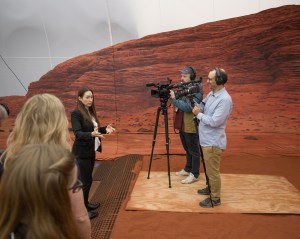
Grace Douglas: I will say that I think they’ve remained very excited that this is an integrated way to collect data. So a lot of, you know, previous data collections and cases like these have not been able to be this integrated and to be able to get this data and understand how everything’s impacting each other on a mission like this. Like if you’re looking at exercise and you’re looking at diet and you’re looking at, you know, isolation and confinement, but you’re collecting that data in such a way that you can really understand those interactions and what might be the cause or effect of something, it really becomes important when you’re starting to plan these missions. And so, because that really enables us to look at our resources and say, okay, how do we set this up correctly with the limited resources that we have to best support our crews to have success on these missions? And so I would say that that has remained a theme that we constantly hear that this is very unique in how integrated it was set up and how everyone is working so closely together and talking all the time to make sure that we all have a good understanding of what’s going on. So that is probably the biggest theme I hear.
Host: We heard it a lot from our guests on this podcast. Just appreciating the integrated nature of it. A lot of the researchers that came on we’re talking about how great this comms delay was and the introduction of the length of the mission, how great that was. There are a lot of aspects that I think we heard from some of the special guests that we’ve had on here. You talked about there’s so much data, right? There’s so much to go through. It’s all in, there’s an integrated approach to that. Can you talk about a little bit what happens now, you know, at the time that CHAPEA ends, what happens with, now that we have all the data, the crew has egressed, they’re going home, they’re seeing their families. We have done the mission, what happens to all the data?
Grace Douglas: So we have kept our team continually looks at that data through the mission. And then once the mission’s over, we will continue to go through that data. However, we do need to get through the next two missions before we can do our fully integrated analysis. We need to get that repeatability. So we do make sure our data is looking good, that we’re going through that data, that we’re checking on it, but it will be after the three missions are complete, before we start doing a deep dive and full analysis and we start reporting this out to the public and start providing that data because we really do need to get several crews through to fully understand that that becomes very important in science to make sure that you have that repeatability.
Host: I suppose from the scientific perspective to put out the data to consolidate it now and it put it out as is would not be representative of exactly what you wanted the scientific community to really start to tackle.
Grace Douglas: Right. Okay. So, if you have one crew through, you’re basically getting information from one crew and you’re getting more of an understanding of, you know, lessons learned. And as you get repeatability, you start to get actual consensus of this is how we need to build these missions.
Host: Okay, understood. Reflecting on this past year, what are you most proud of? Even just the project itself, what are you most proud of?
Grace Douglas: I would say I’m definitely most proud of this team and this crew. It is incredible what they have done and gone through. And this really is very unique. It’s been very challenging, and the fact that we are here is just incredible. And just shows how amazing that the people that are involved in this have been.
Host: It’s the dedication, it really is. I mean, we heard it from the crew, just, you know, just understanding how close they were to the finish line and just really that level of anticipation through some of their more recent audio logs of the egress, but it wasn’t necessarily a super eagerness. They really understood they needed to complete the mission. There was that dedication throughout the mission from the crew, and of course the support teams as well. There’s a lot that we tried to make clear as part of these audio logs and different products just to make sure we were truly demonstrating the value of what this is. We talked about the integrated approach. We talked about all of the different contributions. We talked about the length of the mission, the comm delays. There are so many different aspects, but maybe there’s something that has not been made clear to our audience that may not be evident in expressing just the value of this and even what it took to get this together. Is there something that, I mean, as the principal investigator, you’ve been involved with this since the beginning. I wonder if there’s something that we have not made clear of just really what it took to accomplish this.
Grace Douglas: So you guys did an incredible job. I would say, you know, there was several years in planning to get this going because we did build this from the ground up. So the whole mission, the analog was built from the ground up and then all the scientific planning that went into it, making sure that, you know, all the resources were in place, the infrastructure, the team was ready to accomplish this mission. There’s a lot of little details in that that, you know, you wouldn’t even know unless you were doing it. So I think that there’s just a lot in that part of it. But as far as what we’re going to get out of these missions, we really needed a space where we could set up something that was more Mars-realistic, that had the limited resources, the high tempo EVAs, the comm delay like you mentioned, to really start understanding how to set up these Mars missions. And so that really is the value we’re going to get out of this, is this data’s going to start driving us towards a successful Mars mission. And without analogs like this, we would not be able to collect the data that would start to enable that. So there’s just a lot of value in going down this path if we’re going to be successful to both get our crews to Mars and then bring them home safely.
Host: Absolutely critical. Absolutely critical. Last question for you, Grace, and you mentioned this a little bit, was the continued value of CHAPEA, right? It’s not just CHAPEA 1 is done, we’re going to put the data out. You’re talking about the need to do a CHAPEA 2, a CHAPEA 3, to really get a good sense of the integrated data that we’ve been talking about. Can you talk about the value of these repeated missions?
Grace Douglas: Yes, and so I did mention this a little earlier as well, that with science, you really need a repeatability. So if you have one mission, you got data from one set of crew members over one mission, and that is very good. But statistically, you really need to run these missions multiple times. You need to get several different crews through those missions because the astronauts that go on these missions are always going to be changing. We need to make sure that what we’re getting is repeatable data that we’re not reporting just on a single crew. Then we can show that the data is going to be consistent when we’re setting up these resources. So that’s why we really need to do several of these missions to get that repeatability and provide that information to these mission planners in the scientific community.

Host: So then off of that, Grace, thinking about CHAPEA 2, right? We’re right now at the very end of CHAPEA 1, what can we expect for the next CHAPEA mission?
Grace Douglas: Well, we did put our call out already for the applicants for CHAPEA 2, and we’re very excited that we’re working that path right now. We’re working through a similar selection process to CHAPEA 1. It’s pretty lengthy and very detailed. So we’re very excited to start working with our CHAPEA 2 crew coming up here soon. And we hope that by early next year, we’ll start working towards the start of that mission, which should be around spring of next year. So more details to come on that.
Host: Very good. Well, Grace, I want to end the podcast and I want to end this conversation by just sincerely thanking you for your collaboration with us throughout this whole process. It’s been a wonderful experience. I’ve been lucky to bring on new hosts to this podcast, but the CHAPEA story is one that I wanted to follow all the way through just because I sincerely felt attached to the crew, everything that we were doing and the process with you to provide guests and a round perspective and your detailed review of every episode. I wanted to take this moment to truly thank you for this great collaboration to bring the whole CHAPEA story to Houston We Have a Podcast. It’s been a wonderful experience and thank you very much for being a part of this.
Grace Douglas: Well, we really thank you for bringing this to the public in such a great way.
[Music]
Host: Alright, that’s it from Audio Log #12 from Dune Alpha. Thank you so much for tuning in for all of these different audio logs over the past year. It’s been such an incredible journey to hear from the crew. I know I got to sit in our recording studio with Dane and Will every month and listen to the crew and we were all smiling and, and just really enjoying every time we got to hear from the crew and listen to each of their audio logs so we can put these episodes together. For us, it really felt like being a part of the journey. It was just a wonderful experience. And to have the crew be dedicated to talking with us every single month for a year has been just such a privilege. So it is just been a wonderful, and I hope that you’ve enjoyed as a listener.
Tune in next week as we chat with the CHAPEA crew after their egress. You can check out nasa.gov for the latest. You can check out nasa.gov/podcasts to listen to any of our episodes. You can go through our entire catalog of audio logs if you wish and go through them one at a time from that website. You just have to navigate to Houston We Have a Podcast of the many other great podcasts that we have across the agency. You can also chat with us on social media. We’re on the Johnson Space Center pages of Facebook, X, and Instagram. And on those pages, you can use #AskNASA on your favorite platform to submit an idea, just make sure to mention is for us at Houston We Have a Podcast.
The recordings were sent from the CHAPEA crew through July. And we had the conversation with Grace on June 11, 2024. Thanks to Will Flato, Dane Turner, Abby Graf, Jaden Jennings, Dominique Crespo, Laura Sorto, and Kelsey Spivey. Thanks to Grace Douglas for coming back on the podcast. And thanks to Grace and Jennifer Miller for their efforts in reviewing these audio log episodes. Big thanks to Kelly Haston, Ross Brockwell, Nathan Jones, and Anca Selariu, for sharing their experience for this audience on Houston We Have a Podcast. Give us a rating and feedback on whatever platform you’re listening to us on and tell us what you think of our podcast. We’ll be back next week.
This is an Official NASA Podcast.

